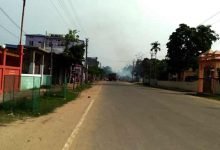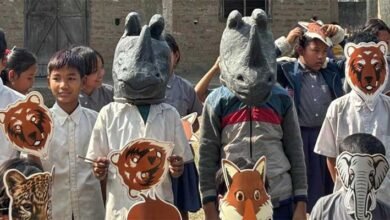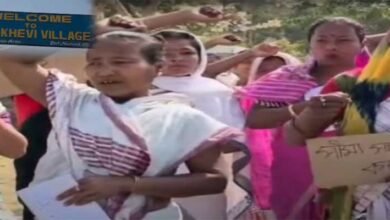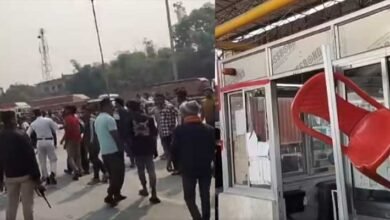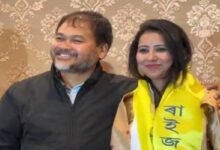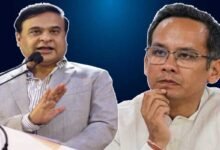Assam: Experts collaborate to devise strategies for the conservation of the Golden Langur in Bongaigaon
The Golden Langur is a strikingly beautiful primate endemic to western Assam and southern Bhutan and found only between the Sankosh and Beki rivers in the eastern Himalayan landscape.
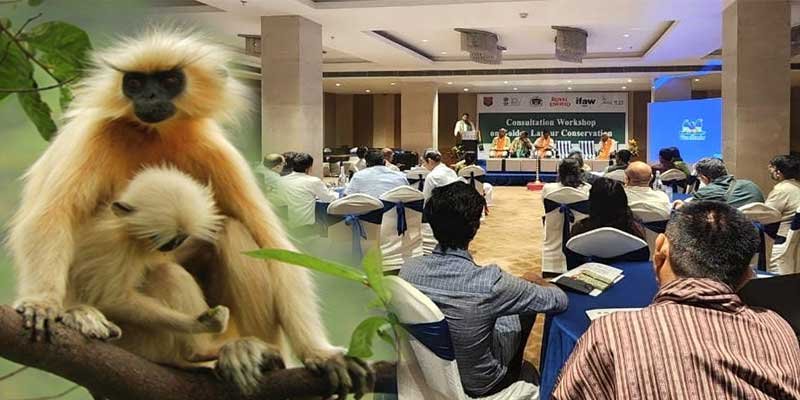
BONGAIGAON- The Wildlife Trust of India (WTI), in collaboration with the Primate Research Centre- NE, Bodoland Territorial Council and the Assam Forest Department, has organised an international workshop and consultation on March 25 in Bongaigaon, Assam.
Supported by the Royal Enfield Social Mission, the workshop aims to collaboratively build on the conservation strategies and action plans for the endangered Golden Langur (Trachypithecus geei). Leading primatologists and conservation practitioners from India and Bhutan participated and shared insights to secure the future of this species in its distribution ranges.
The Golden Langur is a strikingly beautiful primate endemic to western Assam and southern Bhutan and found only between the Sankosh and Beki rivers in the eastern Himalayan landscape. This species faces increasing threats from habitat fragmentation, road accidents, electrocution, and human-wildlife conflict. With only about 7,000 individuals remaining in the wild, this workshop aims to unite conservationists, community leaders, researchers, and policymakers to develop actionable strategies to secure the species’ future.
Also Read- Violence Erupts in Boko Ahead of RHAC Polls
Vivek Menon, Executive Director of WTI and Councillor of the International Union for Conservation of Nature (IUCN), chaired the workshop. In his address, he emphasized, “The golden langur’s survival hinges on innovative solutions and cross-border cooperation. This workshop is a vital step toward aligning efforts in India and Bhutan to protect this endangered primate and its fragile habitat.”
Chief Executive Member of Bodoland Territorial Council (BTC) Mr. Pramod Boro has graced this occasion as the Chief Guest. He welcomed all experts and primatologists to BTC for this important work to draw a roadmap for saving Golden Langur. Mr. Bodo said “ I am delighted to know this effort to save Golden langur which is mainly distributed in the BTC area. I am happy to be a part of this important workshop. We shall implement this action plan after discussing it with the implanting agencies of my government.”
Also Read- Massive Protest by Congress Outside SEBA Office in Guwahati
The event was graced by Mr. Ranjit Basumatary, Honourable Executive Member of Bodoland Territorial Council (BTC) and In-Charge of Forests. In his speech, he stated, “The golden langur is a symbol of our region’s unique biodiversity, and its survival depends on collective action. The BTC government is committed to the protection and conservation of golden langur.” He highlighted recent efforts, noting, “The BTC has safeguarded nearly all habitats of this species within our jurisdiction by establishing new protected areas such as Raimona National Park and Sikhna Jwhwlao National Park apart from the existing Manas National Park and Chakrashila Wildlife Sanctuary.”
Bidisha Dey, Executive Director, Eicher Group Foundation, the CSR arm of Royal Enfield, expressed her organization’s support, saying, “At Royal Enfield Social Mission, we recognise the importance of working towards the protection and conservation of the Golden Langur. This keystone species depicts the ecological significance of the Greater Manas region, a critical landscape representing the large trans boundary protected area network shared between India and Bhutan. We are proud to support our partner, WTI, along with other stakeholders, in developing a comprehensive conservation action plan to safeguard this extraordinary keystone species and its habitat.”
Also Read- Assam CM Himanta Biswa Sarma Vows Zero Tolerance on Cow Smuggling
Dr. Mewa Singh, a revered primatologist with over five decades of experience in primate conservation in India, actively participated and offered valuable insights. He remarked, “Protecting the golden langur requires a blend of scientific research and community engagement. Strengthening habitat connectivity through canopy bridges and reducing human-induced threats are critical steps forward.”
Dr. Russell Mittermeier, Chair of the IUCN SSC Primate Specialist Group, enthusiastically endorsed the initiative, emphasizing the critical role of the Action Plan. He stated, “Action Planning has long been a cornerstone of the IUCN SSC Primate Specialist Group dating back to the first Global Strategy for Primate Conservation in 1977 and the first modern action plans in the 1980s. We are delighted that an Action Plan is now in preparation for the Golden Langur, one of India’s most iconic species.”
Also Read- Controversy Over Viral Audio Clip in Assam Assembly
Forest officials from neighbouring Bhutan shared their ongoing efforts to conserve the golden langur and expressed enthusiasm for collaborating with their Indian counterparts to protect this species across its transboundary range. Experts from the Wildlife Institute of India (Dehradun), Salim Ali Centre for Ornithology and Natural History (SACON, Coimbatore), and other primatologists presented diverse suggestions for the conservation and management of the golden langur and its unique habitats in Assam and Bhutan.
Drawing on the input and recommendations from these experts, a vision document will be prepared outlining actionable steps and timelines. This document will serve as a guiding document for conservation organizations and governments to secure the golden langur’s future in Assam and Bhutan.
